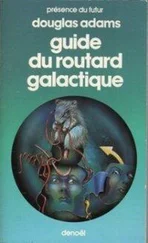Douglas Adams - The Salmon of Doubt
Здесь есть возможность читать онлайн «Douglas Adams - The Salmon of Doubt» весь текст электронной книги совершенно бесплатно (целиком полную версию без сокращений). В некоторых случаях можно слушать аудио, скачать через торрент в формате fb2 и присутствует краткое содержание. Жанр: Фантастика и фэнтези, на английском языке. Описание произведения, (предисловие) а так же отзывы посетителей доступны на портале библиотеки ЛибКат.
- Название:The Salmon of Doubt
- Автор:
- Жанр:
- Год:неизвестен
- ISBN:нет данных
- Рейтинг книги:4 / 5. Голосов: 1
-
Избранное:Добавить в избранное
- Отзывы:
-
Ваша оценка:
- 80
- 1
- 2
- 3
- 4
- 5
The Salmon of Doubt: краткое содержание, описание и аннотация
Предлагаем к чтению аннотацию, описание, краткое содержание или предисловие (зависит от того, что написал сам автор книги «The Salmon of Doubt»). Если вы не нашли необходимую информацию о книге — напишите в комментариях, мы постараемся отыскать её.
The Salmon of Doubt — читать онлайн бесплатно полную книгу (весь текст) целиком
Ниже представлен текст книги, разбитый по страницам. Система сохранения места последней прочитанной страницы, позволяет с удобством читать онлайн бесплатно книгу «The Salmon of Doubt», без необходимости каждый раз заново искать на чём Вы остановились. Поставьте закладку, и сможете в любой момент перейти на страницу, на которой закончили чтение.
Интервал:
Закладка:
It’s also good to know the difference between a lizard and a blizzard. This is quite an easy one. Though the two things sound very much alike, you find them in such very different parts of the world that it is a very simple matter to tell them apart. If you are somewhere inside the Arctic circle then what you are looking at is probably a blizzard, whereas if you are in a hot and dry place like Madagascar or Mexico, it’s more likely to be a lizard. This animal is a lemur. There are lots of different kinds of lemurs, and they nearly all live in Madagascar. Madagascar is an island—a very large island: much, much larger than your hat, but not as large as the moon. The moon is much larger than it appears to be. This is worth remembering because next time you are looking at the moon you can say in a deep and mysterious voice,
“The moon is much larger than it appears to be,” and people will know that you are a wise person who has thought about this a lot. This particular kind of lemur is called a ring-tailed lemur. Nobody knows why it is called this, and generations of scientists have been baffled by it. One day a very wise person indeed will probably work out why it is called a ring-tailed lemur. If this person is exceedingly wise, then he or she will only tell very close friends, in secret, because otherwise everybody will know it, and then nobody will realise how wise the first person to know it really was. Here are two more things you should know the difference between: road and woad. One is a thing that you drive along in a car, or on a bicycle, and the other is a kind of blue body paint that British people used to wear thousands of years ago instead of clothes. Usually it’s quite easy to tell these two apart, but if you find it at all difficult to say your r’s properly, it can lead to terrible confusion: imagine trying to ride a bicycle on a small patch of blue paint, or having to dig up an entire street just to have something to wear if you fancy spending the evening with some Druids.
Nowadays most people know what a wonderful thing the sun is, so there aren’t many Druids around anymore, but there are still a few just in case it slips our mind from time to time. If you find someone who has a long white robe and talks about the sun a lot, then you might have found a Druid. If he turns out to be about two thousand years old, then that’s a sure sign.
If the person you’ve found has got a slightly shorter white coat, with buttons up the front, then it may be that he is an astronomer and not a Druid. If he is an astronomer, then one of the things you could ask him is how far away the sun is. The answer will probably startle you a lot. If it doesn’t, then tell him from me that he hasn’t explained it very well. After he’s told you how far away the sun is, ask him how far away some of the stars are. That will really surprise you. If you can’t find an astronomer yourself, then ask your parents to find one for you. They don’t all wear white coats, which is one of the things that sometimes make them hard to spot. Some of them wear jeans or even suits. When we say that something is startling, we mean that it surprises us a very great deal. When we say that something is a starling, we mean that it is a type of migratory bird. “Bird” is a word we use quite often, which is why it’s such an easy word to say.
Most of the words we use often, like house and car and tree, are easy to say. Migratory is a word we don’t use nearly so much, and saying it can sometimes make you feel as if your teeth are stuck together with toffee. If birds were called “migratories” rather than “birds,” we probably wouldn’t talk about them nearly so much. We’d all say, “Look, there’s a dog!” or “There’s a cat!” but if a migratory went by, we’d probably just say, “Is it teatime yet?” and not even mention it, however nifty it looked. But migratory doesn’t mean that something is stuck together with toffee, however much it sounds like it. It means that something spends part of the year in one country and part of it in another.
Brandenburg 5
Whatever new extremities of discovery or understanding we reach, we always seem to find the footsteps of Bach there already. When we see images of the strange mathematical beasts lurking at the heart of the natural world—fractal landscapes, the infinitely unfolding paisley whorls of the Mandelbrot Set, the Fibonacci series, which describes the pattern of leaves growing on the stem of a plant, the Strange Attractors that beat at the heart of chaos—it is always the dizzying, complex spirals of Bach that come to mind.
Some people say that the mathematical complexity of Bach renders it unemotional. I think the opposite is true. As I listen to the interplay of parts in a piece of Bach polyphony, each individual strand of music gathers hold of a different feeling in my mind, and takes them on simultaneous interweaving roller coasters of emotion. One part may be quietly singing to itself, another on an exhilarating rampage, another is sobbing in the corner, another dancing. Arguments break out, laughter, rage. Peace is restored. The parts can be utterly different, yet all belong indivisibly together. It’s as emotionally complex as a family.
And now, as we discover that each individual mind is a family of different parts, all working separately but together to create the fleeting shimmers we call consciousness, it seems that, once again, Bach was there before us. When you listen to the Fifth Brandenburg Concerto, you don’t need a musicologist to tell you that something new and different is happening. Even two and three quarter centuries after it actually was new, you can hear the unmistakable thrumming energy of a master at the height of his powers doing something wild and daring with absolute self-confidence. When Bach wrote it, he put himself at the harpsichord instead of the viola he more usually played in ensembles. It was at a happy, productive time of his life when he was at last surrounded by some good musicians. The harpsichord traditionally played a supporting role in this kind of group, but not this time. Bach let rip.
And then it makes its move—running ... hurtling ... flying ... climbing ... clambering ... pushing ...
panting ... twisting ... thrashing ... pounding at the ground ... pounding ... pounding ... suddenly breaking away, running onward desperately, and then, with one last little unexpected step up in the bass, it’s home and free—the main tune charges in triumphantly and it’s all over bar the weeping and dancing
(i.e., the second and third movements).
The familiarity of the Brandenburgs should not blind us their magnitude. I’m convinced that Bach is the greatest genius who ever walked among us, and the Brandenburgs are what he wrote when he was happy.
Penguin Classics Vol. 27: Bach—
Brandenburg Concertos 5 & 6, Violin Concerto in A Minor (English Chamber Orchestra, conducted by Benjamin Britten)
THE
UNIVERSE
Frank the Vandal Things are rather complicated by the fact that one of them is an electrician called Frank the Vandal. That is, his friends, if he has any that aren’t in hospital, call him Frank, and I call him Frank the Vandal because every time he needs to get at any bit of wiring, he tends to hack his way through anything else that’s in the way to get at it—plasterwork, woodwork, plumbing, telephone lines, furniture, even other bits of wiring that he’s put in himself on previous raids. He is, I am assured, very good as an electrician, though I think he is maybe not very good as a human being. But I’m digressing here from the point I was trying to make, and have rather lost the thread because Frank just cut the power off since I did the last save. So, where was I? Ah yes. The house was virtually a complete wreck when I bought it. Not quite as much a wreck as it is when Frank’s been here, but nevertheless, it was pretty much an empty shell into which walls, floors, plumbing, and so on had to be put. When the walls have to be built, an expert (or so I’m told—not so sure about that myself, but in principle an expert) bricklayer comes into the house and builds them. I need floors and stairs and cupboards and things, so a carpenter, whistling a merry carpenter’s tune, comes round and plies his trade. Then a plumber comes round and dittoes. Then Frank the Vandal comes round to wrench some wiring into place, and of course the carpenter and plumber and so on have to come round again and make extensive repairs. I’m going to have to drop the subject of Frank because he’s not a part of the analogy I am by slow degrees attempting elegantly to construct. It’s just that he preys on my mind a bit at the moment and it’s difficult not to sit here feeling nervous while he’s in the house. So forget Frank. You’re lucky. You can.
Читать дальшеИнтервал:
Закладка:
Похожие книги на «The Salmon of Doubt»
Представляем Вашему вниманию похожие книги на «The Salmon of Doubt» списком для выбора. Мы отобрали схожую по названию и смыслу литературу в надежде предоставить читателям больше вариантов отыскать новые, интересные, ещё непрочитанные произведения.
Обсуждение, отзывы о книге «The Salmon of Doubt» и просто собственные мнения читателей. Оставьте ваши комментарии, напишите, что Вы думаете о произведении, его смысле или главных героях. Укажите что конкретно понравилось, а что нет, и почему Вы так считаете.







